

Discover more from DARK FUTURA
Record Labels Panic as A.I. Generated Song Becomes Hit Single
Welcome to the new world.
An interesting landmark case has turned over a new milestone in AI development this week. The first AI-generated ‘hit single’ has appeared. A song featuring AI synthesized versions of hip-hop/R&B artists Drake and The Weeknd has garnered over 15 million views, with many fans calling the song far better than anything from the recent ouvre of either human artist.
Universal Records panicked and called on their legal clout to have the song pulled off from streaming services.
In truth, it may not be the first ‘hit’ song to utilize AI in its production. In 2018 Taryn Southern created an entire AI-produced album palindromically titled I AM AI. However, in her case she merely used an AI production software to build the instrumentation and melodies, which she herself—a real live human—sang over.
But the latest spectacle in question, ‘Heart on My Sleeve’, utilizes something far more advanced and unnerving. It is the total AI replication of two famous artists’ voices, and it is frighteningly indistinguishable from the real thing, even down to the little nuances and idiosyncrasies of their lyrical delivery. In short, it is the ‘deepfake’ equivalent for sound and voice.
Though the video and audio are being taken down everywhere, you can hear it yourself here:
Although, you’d have to have been familiar with the artists’ previous music to truly appreciate what you’re hearing, and how closely it’s mimicking them. Otherwise it just sounds like a normal song sung by regular people.
This has coincidentally followed the release of a new AI version of the Joe Rogan Podcast, which similarly utilizes language models trained on Joe Rogan’s voice to mimic him with the sonic equivalent of a ‘photo-realistic’ uncanny valley deep fake.
Many readers may understandably be more familiar with Rogan’s voice, so you can listen to one of the episodes yourself, where AI Rogan converses with an AI Trump.
As some have mentioned in the comments, it’s the little idiosyncratic details that make it so startlingly convincing. The small ‘breaths’ taken before sentences, the little inflections of the voice.
Rogan himself invoked the slippery slope this portends in a subsequent warning issued about the advancement of such technology:
It need not be said what kind of truly indistinguishable new ‘Deep Fake’ technology is possible with the combination of visual Deep Fake with the audio form, as well as the new ChatGPT-style language models. One could hypothetically create a Deep Fake of a famous persona who in effect communicates with you by way of video signal, in real time rather than a pre-recorded and generated video. Who can answer your questions and converse with you in a way that completely passes the facsimile off as the real thing, leaving you unable to even know that you’ve talked to a digital surrogate.
It’s interesting that major record labels like Universal have suddenly sprung into action over the same concerns that the lowly peasant-artists have already gnashed their teeth over for several years. The fact that generative AI companies like MidJourney are allowed to ‘train’ their models on an endless feast of known human artists, whose work is then replicated in both aesthetic and spirit, but who are never compensated in turn.
But now that it happens to powerful figures with legal clout, their parent companies express the selfsame sympathies and leap into action:
Drake's complaint came after Universal Music Group wrote to streaming services including Spotify and Apple Music, asking them to prevent artificial intelligence companies from accessing their libraries.
It is thought companies have been using the music to "train" their software.
"We will not hesitate to take steps to protect our rights and those of our artists," UMG warned in the email, first obtained by the Financial Times. -Source
So, Universal wants to prevent these generative AI services from being able to access Universal’s libraries of artists and albums for the purpose of training the language models to mimic the voices of the famous personalities in their stable.
It will be interesting to see if Universal’s injunctions prove legally binding in a way that lowly peasant artists were unable to effect when they attempted to organize such actions numerous times in the recent past. For the whole duration of last year, artists have organized in attempts to prevent the same type of predatory generative AI outfits from ‘mass harvesting’ their work to use as fodder for the training of their models.
Now, a record-label-backed effort has even launched the ‘Human Artistry Campaign’, which seeks to establish an ‘ethical’ grounding for the usage of such generative AI to protect human artists.
In response, a broad coalition of musicians and artists have launched a "Human Artistry Campaign", whose aim is to ensure artificial intelligence will not "erode" human creativity.
Backed by the Recording Industry Association of America, the Association for Independent Music and the BPI - which organises the Brits - the group has outlined seven principles advocating AI best practices, and stressed that copyright protection should only be afforded to music created by humans. -Source
For those wondering how this is all possible, specifically in terms of training an AI language model to replicate the voice of a famous artist as in the Drake song in question, the following video gives a rundown. It includes an example where a song with the AI-replicated voice of Kanye West is constructed in real time:
https://twitter.com/i/status/1639813074176679938
As the video creator states, this has huge implications for the music industry alone. Now, reference tracks, which are a standard in the construction of music in the industry, can be made with the actual voice of the intended artist for whom the track is being written.
The legal ramifications of these advances, though, remain murkier than ever. This CNN article gives a rundown of the rush to find legal footing on the issue. However, as of now there is no real consensus, and legal reactions are described as being the equivalent of playing ‘whack a mole’, treating each enforcement issue separately on a case by case basis without any underlying legal framework that encompasses these new developments.
In essence, such compositions are not infringing copyright because they are ‘original compositions’ in terms of their music and lyrical content.
Audrey Benoualid, an entertainment lawyer based in Los Angeles, said one could argue “Heart On My Sleeve” does not infringe copyright as it appears to be an “original” composition.
No regulations exist that dictate on what AI can and cannot train. But last month, in response to individuals looking to seek copyright for AI-generated works, the US Copyright Office released new guidance around how to register literary, musical, and artistic works made with AI.
The copyright will be determined on a case-by-case basis, the guidance continued, based on how the AI tool operates and how it was used to create the final piece or work. The US Copyright Office announced it will also be seeking public input on how the law should apply to copywritten works the AI trains on, and how the office should treat those works.
And evidently, human voices cannot be copyrighted because copyright is intended for creative ‘works’ only, and a human voice is not a fixed, static ‘work’, although that topic apparently, too, remains murky. Here is one ‘legal expert’s’ opinion:
Not copyright as such because that is about protecting a 'work' — a voice is not a 'work'. As the court said in one of the following examples, "A voice is not copyrightable. The sounds are not 'fixed.'"
(You could copyright a roar or a yell — some kind of fixed arrangement of sound(s).)
But some jurisdictions have recognised property rights in voices and/or that the voice is protected by the person's 'right of publicity' (the right to control the commercial exploitation of their identity, of which the voice is a part).
The conclusion appears to be that, so long as you warn your audience in advance that the voice is not in fact the original, then it remains legal to synthesize a person’s vocal likeness. It apparently only becomes illegal if you try to pass the recording off as the artist’s actual voice, so that you could make a profit from pretending the recording is theirs, fooling legions of fans into forking over cash, for instance.
With that said, the law protects celebrity likenesses more specifically. And in light of these recent developments, actors have begun to complain that film contracts are now asking for them to sign over their voices for future potential AI replication.
Voice actors are increasingly being asked to sign rights to their voices away so clients can use artificial intelligence to generate synthetic versions that could eventually replace them, and sometimes without additional compensation, according to advocacy organizations and actors who spoke to Motherboard. Those contractual obligations are just one of the many concerns actors have about the rise of voice-generating artificial intelligence, which they say threaten to push entire segments of the industry out of work.
This is just the beginning of a new normal. In the Vice article quoted above, voice actors complain about the shifting guardrails which allow their voices to be used in increasingly unethical ways; for instance in recording lines that the human voice actor may have objected to, or simply ad-libbing additional lines later on to fill out scenes, which the voice actor will not be compensated for.
The technological disruption always starts small, with seemingly ‘minor’ cases as those highlighted above, but soon after invariably burgeons into a new world, where entire sectors are put out of business.
The fact is, AI-generated content will soon be here to stay. Last month, Twitch pulled a 24/7 stream of an AI-generated Seinfeld show called Nothing, Forever.
The scale of these disruptions, particularly at the spammy low-end hustle-and-scheme level, has already been eye-watering. Twitter and Youtube are now chock-full of tutorials for making a quick buck using ChatGPT and other such apps. Everything from generating spammy clickbait content, to using websites like Fiverr, where one can fill a slew of lower level customer orders for generating certain types of website content by simply letting ChatGPT spit it out for you.
One such prominent technique is to generate endless spammy ‘list’ sites, like “top 10 travel destinations”—you know the bottom-feeding kind parasitizing SEO algorithms you’ve likely experienced before.
Just today, Max Read even dropped an article on just this kind of new predatory class of shysters that’ve been energized by these cheap, democratized AI advancements:
He highlights further examples: like using AI generated images to create product photos for companies, low-hanging fruit for the enterprising hustler to take advantage of for a fast buck.
He goes on to describe how such new age AI grifters have taken over Twitter algorithms, turning AI into the quintessential Network Marketing Scheme of the modern era. It just goes to show that in the near future, we can expect a veritable deluge of AI-spawned bastardizations of every conceivable pursuit and discipline a human being can call a livelihood.
Every career, job, side-hustle, and gig will have an AI-assisted knock-off variation offering the slick promise of higher output and faster turnarounds. But the bigger question will be whether these early AI pangs will turn into a legitimate ‘revolutionary’ advancement for the human race, or rather devolve into AI becoming more of an inconvenient technological pest, a sort of intrusive gimmick akin to the advent of digital ads.
Max Read brings up a good point with his quote of Krugman’s infamously risible ‘90s prediction, which said that the internet’s economic impact in the future would be minimal at best. Many now understandably chuckle at its self-evident shortsightedness.
Yet as Max points out, in some ways it has actually proven more true than is comfortable for some to admit. Has the internet truly revolutionized the world, or even the economy? Apart from the superficial, like being able to order useless tchotchkes online, has anything in society truly, fundamentally changed?
In fact, most of the characteristic features of modern society people ascribe to some ‘internet revolution’ were in fact instead brought on by the less overt—though more insidious—phenomenon of globalism, which itself is merely an extension of the Western economic system’s decline post-Nixon’s Bretton Woods repealment.
Similarly, could these new AI advancements be oversold? Perhaps in 2050 we too will wake up in a world where AI is nothing more than an annoying corporate intrusion, like the old ‘Clippy’ from Microsoft Word, ever hassling us with spam and patronizing, unsolicited ‘assistance’.
Maybe the largest worry will turn out to be a bunch of pop singers crying about their stolen vocal likeness. Maybe it will even be the death of the pop music genre altogether.
Would that really be a bad thing?
If you enjoyed the read, please consider subscribing to a monthly or yearly pledge to support my work, so that I may continue providing you with incisive transmissions from the dingy underground.
Otherwise, you can tip here:





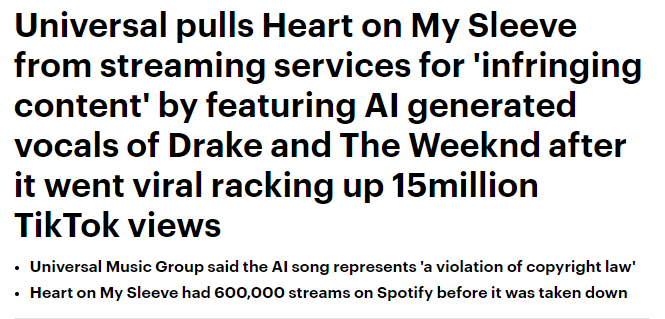

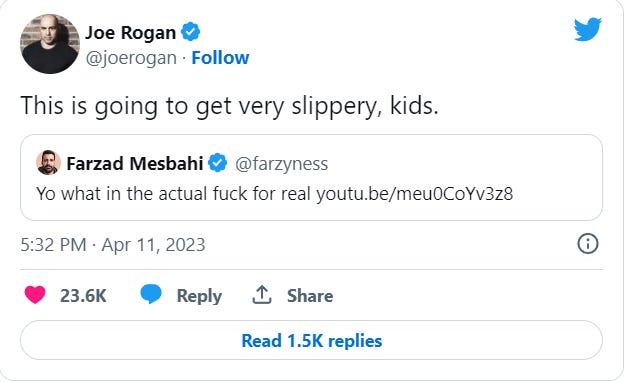


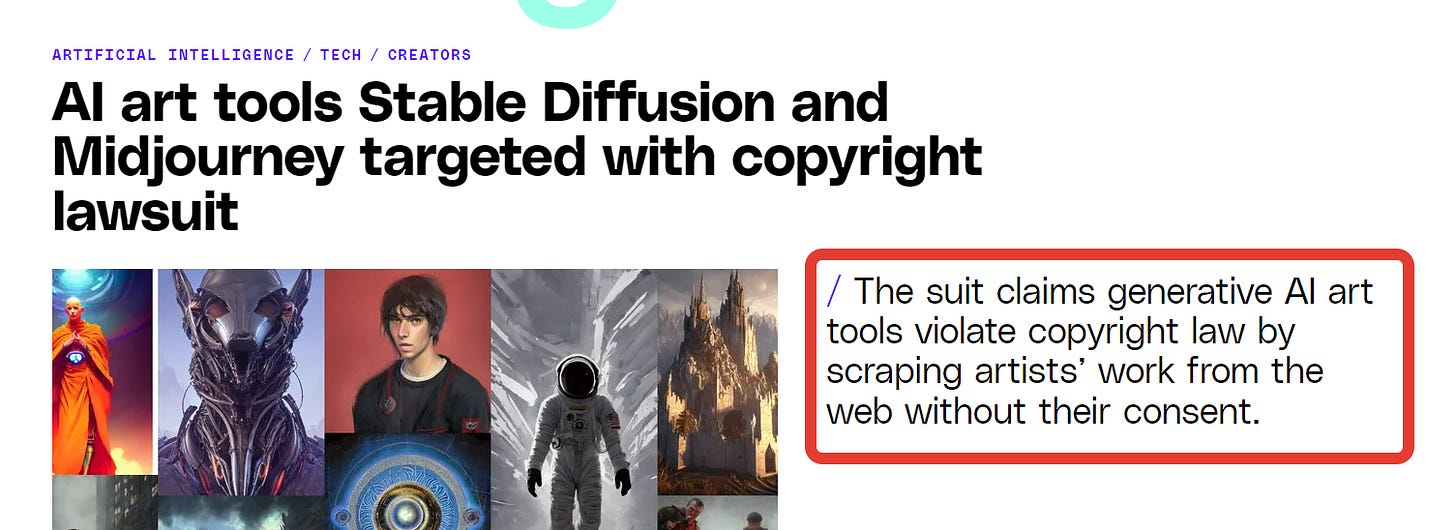



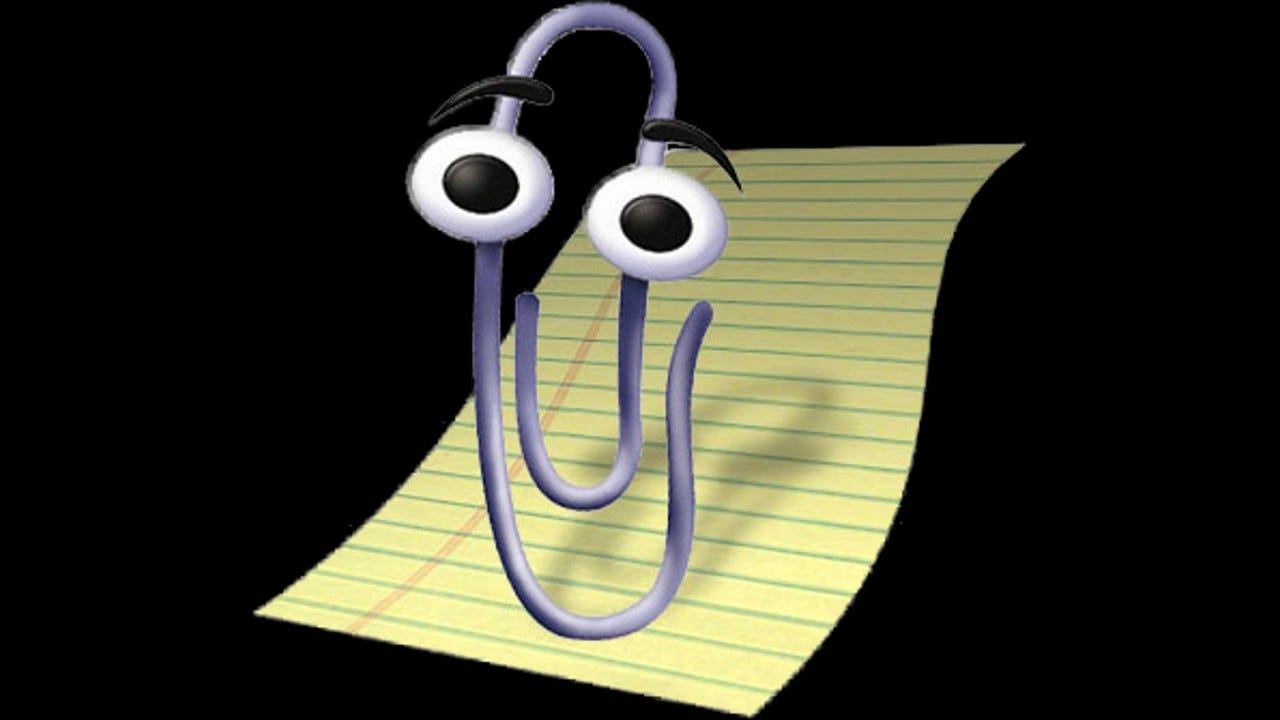
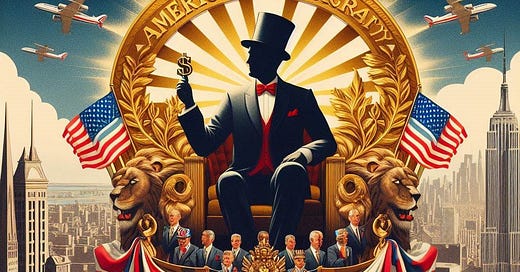



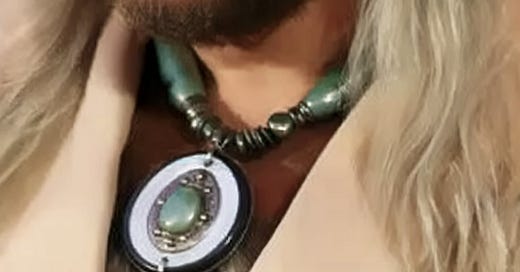

In 5 or 10 years, or perhaps even now, AI will be able to fabricate audio/video and evidential records which appear true and implicate individuals in crime or morally reprehensible acts.
They may be used intentionally by FBI and deep state, or simply released to the internet by opponents of the person targeted to destroy their reputation and life.
It will happen in political campaigns.
"Maybe it will even be the death of the pop music genre altogether. Would that really be a bad thing?"
Not just pop music, but all genres of music and all kinds of art! Even literature! Would that be a bad thing? We are truly entering the matrix world. We will never be able to tell what's real and what's not real. To my mind, it is almost the end of modern civilisation.